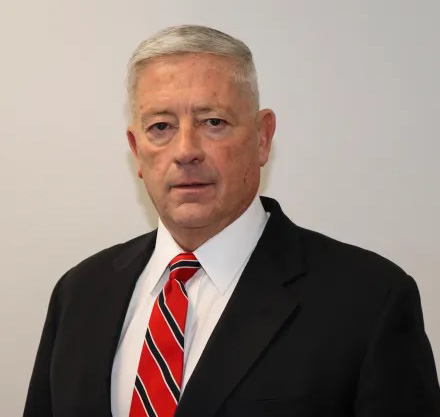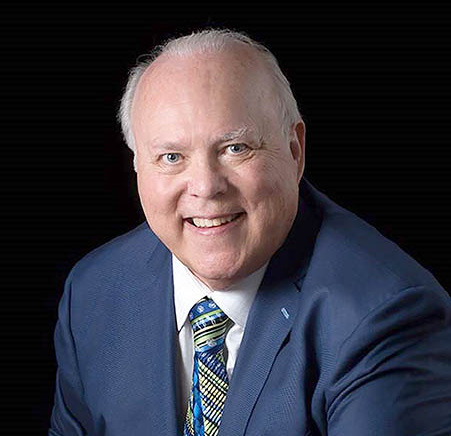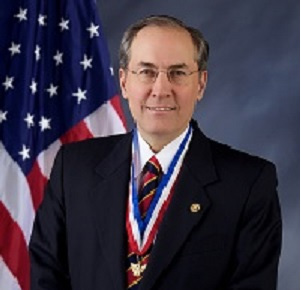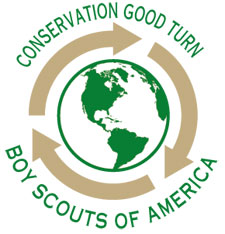
Since 1910, conservation has been an integral part of the program of Scouting America. Scouting America has been a positive force in conservation and environmental efforts. Scouts have rendered distinguished public service by helping to conserve wildlife, energy, forests, soil, and water. Past generations of Scouts have been widely recognized for undertaking conservation Good Turn action projects in their local communities.
Scouts of today have grown up hearing words such as ecosystem, biodiversity, and climate change. They recognize the need for, and the benefits of, conserving natural resources. Scouts understand that we all must work together for the betterment of the land, forests, wildlife, air, and water.
Much has been accomplished in recent years by individual Scouts and through unit conservation Good Turns. Much more needs to be done.
To Earn The Conservation Good Turn Award
The Conservation Good Turn Award is an opportunity for Cub Scout packs, Scout troops and Venturing crews to join with conservation or environmental organizations (federal, state, local, or private) to carry out a conservation Good Turn in their home communities, camp properties, or on public lands.
- The Scouting unit contacts a conservation organization, (or land manager, Camp Ranger or other appropriate official) and offers to carry out a Conservation Good Turn project.
- The conservation organization identifies a worthwhile and needed project that the unit can accomplish.
- Working together, the unit and the conservation organization plan the details and establish the date, time, and location for carrying out the project.
- The Scout, Venturer, Sea Scout or Cub Scout earns the Conservation Good Turn Award by participating in the planned conservation project to the satisfaction of the unit leader. Projects can be conducted in partnership with any conservation organization, land management agency, Council Conservation Committee, Camp Ranger or Ecology Program at a Scout Camp or Scouting Event. Working with the unit to assist a Scout, Sea Scout or Venturer who is working to complete an approved Scouting America Distinguished Conservation Service Award project is a suitable opportunity for earning the Conservation Good Turn Award.
Participating Agencies
Many federal agencies are resources for the Scouting America’s Conservation Good Turn. These agencies include:
- U.S. Department of Agriculture
- Natural Resources Conservation Service
- Forest Service
- Cooperative State Research, Education, and Extension Service
- U.S. Department of the Interior
- Fish and Wildlife Service
- Bureau of Land Management
- National Park Service
- Geological Survey
- Bureau of Indian Affairs
- Bureau of Reclamation
- U.S. Environmental Protection Agency
Most state natural resource agencies are also a resource for the Scouting America’s Conservation Good Turn Award. Another source would be NGOs (non-governmental organization) that deal with conservation issues.
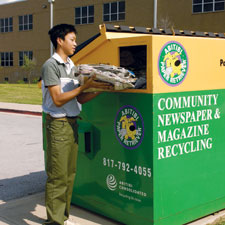
Recognitions
A Conservation Good Turn certificate is available at the council service center for units that participate and report on their efforts. A Conservation Good Turn patch is also available for purchase at the council service center to recognize individual youth and adult members who participate in a meaningful conservation project.
Project Ideas
Conservation and environmental organizations typically have a backlog of needed projects that they have been unable to carry out for lack of funding or volunteers. The list of possible Good Turn projects is limited only by the needs of the conservation organization and the willingness of the Scouting unit. In every community, whether urban, suburban, or rural, worthwhile projects await all Scouting units.
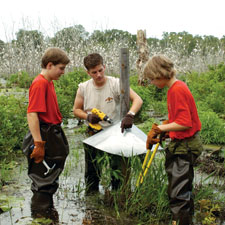
Cub Scouts and Webelos Scouts
Cub Scouting conservation projects could involve the entire Cub Scout pack, or one den, plus adult leaders and family members. Hands-on projects help Cub Scouts and Webelos Scouts realize that everyone can do things to care for the environment. Cub Scouts and Webelos Scouts participating in the Conservation Good Turn can also meet some advancement requirements. Suggested projects include, but are not limited to
- Plant grasses, trees, shrubs, and ground cover to stop soil erosion.
- As a den or pack, adopt a park. Remove litter and garbage from a favorite neighborhood recreation area or park.
- Organize or participate in a recycling program in your neighborhood or visit a recycling center.
- Arrange a natural resources awareness program. Invite natural resource professionals such as wildlife biologists, soil conservationists, foresters, or conservation officers to speak to your pack.
- Participate in a beach or waterfront cleanup. Record the items collected and determine the possible harmful effects to wildlife. With youth participation, develop a plan to educate the public about the dangers posed to wildlife.
- From a local, state, or national organization that is concerned about environmental protection, obtain suggestions for den and pack projects to improve the environment.
- As a den or pack, visit a public utility to learn about the wise use of resources, and become involved in programs offered by utilities to help consumers conserve resources.
- Contact the camp ranger or Scouting America local council property superintendent for information about camp needs and plans. Establish a nature trail, plant vegetation, or carry out other needed projects as requested by the camp ranger.
Scouts BSA, Venturing and Sea Scouts
Scouts participating in the Conservation Good Turn can meet certain rank and merit badge requirements. Troops, crews and ships should consider advancement requirements when selecting projects to carry out. Suggested projects include, but are not limited to:
- Plant shrubs to provide food and cover for wildlife.
- Build and set out bird and squirrel nesting boxes.
- Conduct stream improvement projects to prevent erosion.
- Plant grasses and legumes to provide ground cover in schoolyards, public parks, and recreation areas.
- Plant tree seedlings as part of a managed forestry plan.
- Help thin and prune woodlands in a managed tree improvement project.
- With a local forester, take part in or conduct a forest fire prevention or hazardous fuel reduction program.
- Develop a nature trail in a public park.
- Assist a local forester in a tree insect- and disease-control or public education project.
- Conduct a stream, river or lakeside trash collection project.
- Assist a local agency with a trout stream restoration project.
- Participate in a wildlife or wildfowl count.
- Conduct a rodent-control and public health education program under the guidance of the local health department or agency responsible for rodent control
- Conduct an invasive species (plant or animal) management project.
- Install an erosion control practices on a hiking trail.
- Conduct an Outdoor Ethics conservation project to minimize recreational impacts to a campsite.
- Install or maintain a pollinator garden
- Certificate Application
Certificate Application
When project has been completed, submit the completed Conservation Good Turn Award Application to your local council service center.
Conservation Good Turn Award Application
Conservation Good Turn Award Application – Fillable
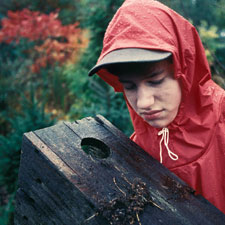
Scouting America Distinguished Conservation Awards
For Scouts and units that want to take their conservation work to a higher level, the Scouting America Distinguished Conservation Service Award program encourages and recognizes units, Scouts, Venturers Sea Scouts and Scouters who design, lead, and carry out conservation projects that are based on sound scientific principles and practices. The projects should contribute to sound conservation and long-term environmental improvement in the local community, the region, or the nation. The applicant is expected to research potential projects and to choose, with guidance from a conservation adviser, a worthy project from a recognized conservation category:
- Energy conservation
- Soil and water conservation
- Fish and wildlife management
- Forestry and range management
- Air and water pollution control
- Resource recovery (recycling)
- Hazardous material disposal and management
- Invasive species control
Three types of Scouting America Distinguished Conservation Service Awards are available. The local council may present:
- The Scouting America Distinguished Conservation Service Award
The National Council confers the other awards.
- Adult Scouters may be nominated for the Scouting America Distinguished Conservationist.
- Organizations unaffiliated with Scouting may be nominated for the Scouting America Distinguished Conservation Service Award certificate.
For more detailed information on the Scouting America Distinguished Conservation Service Award Program, visit the Scouting America Distinguished Conservation Service Award Program here.





